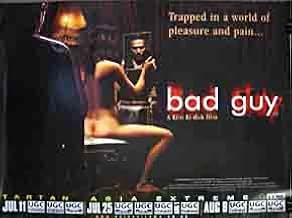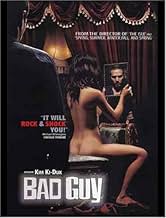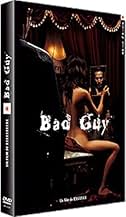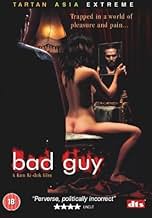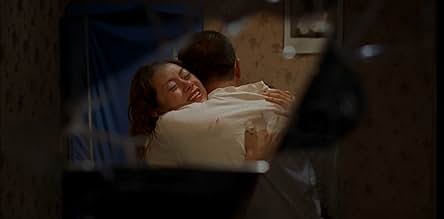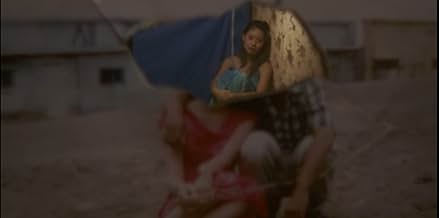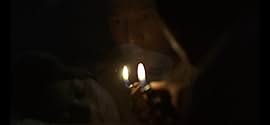CALIFICACIÓN DE IMDb
6.6/10
11 k
TU CALIFICACIÓN
Un gángster insensible busca arruinar la vida de una joven que lo rechazó, obligándola a prostituirse y espiándola con regularidad. Sin embargo, pronto comienza a enamorarse de ella.Un gángster insensible busca arruinar la vida de una joven que lo rechazó, obligándola a prostituirse y espiándola con regularidad. Sin embargo, pronto comienza a enamorarse de ella.Un gángster insensible busca arruinar la vida de una joven que lo rechazó, obligándola a prostituirse y espiándola con regularidad. Sin embargo, pronto comienza a enamorarse de ella.
- Dirección
- Guionista
- Elenco
- Premios
- 4 premios ganados y 3 nominaciones en total
Kim Yun-tae
- Yun-tae
- (as Yun-tae Kim)
Kim Jeong-yeong
- Eun-hye
- (as Kim Jung-young)
Namgoong Min
- Hyun-soo
- (as Namkoong Min)
- Dirección
- Guionista
- Todo el elenco y el equipo
- Producción, taquilla y más en IMDbPro
Opiniones destacadas
Beauty and the Beast was an original tale written by a French author in 1756 and is considered the gold standard for "unusual" love stories.
(The best movie version of the original story was also done by a French film-maker and reviewed here by this writer -- La Belle et La Bete) I am guessing that if you go back far enough you will find many versions of equally twisted love stories through history, because love at its core is not always the stuff of Valentine cards.
This extraordinary film is about love, it is also about justice, it is also about impulse control.
It also gives a whole meaning to the term "unrequited love." I recommend it but suggest you leave your expectations at the door. Even the publicists for the film seem to have got it wrong -- the artwork for the DVD suggest a seamy sex movie and in fact that approach is completely wrong.
Amazing.
(The best movie version of the original story was also done by a French film-maker and reviewed here by this writer -- La Belle et La Bete) I am guessing that if you go back far enough you will find many versions of equally twisted love stories through history, because love at its core is not always the stuff of Valentine cards.
This extraordinary film is about love, it is also about justice, it is also about impulse control.
It also gives a whole meaning to the term "unrequited love." I recommend it but suggest you leave your expectations at the door. Even the publicists for the film seem to have got it wrong -- the artwork for the DVD suggest a seamy sex movie and in fact that approach is completely wrong.
Amazing.
"Bad Guy (Nabbeun namja)" is an earlier film of Ki-duk Kim that is probably being released now in the U.S. due to the success of "Spring, Summer, Fall, Winter... and Spring (Bom yeoreum gaeul gyeoul geurigo bom)," but fans of that visually entrancing parable should be warned how very different this exploration of the depths of human nature is.
The style has some similarity in that there is no exposition and we have to connect images that tell a tale of two very different people over time. Context is everything as voyeurism keeps repeating along a sexual spectrum of men and women together -- to romantic or erotic or degrading or lustful or violent, full of obsession or love or hate or longing or disgust, whether in prostitution, a relationship, or rape.
A key context is emotions and degrees, whether by the man or woman, or mutual, or drained of feeling such that I'm not sure love has any meaning in this film. There's a recurring use of Egon Schiele's erotic art to make some kind of comparative point about a continuum of sexual images and their effect on the viewer.
The titular character is reminiscent of Quasimodo of "The Hunchback of Notre Dame" fixating on Esmeralda if he were a psychopathic pimp in, I presume, Seoul's lurid red light district and played by the charismatic Jae-hyeon Jo, like an apolitical "Romper Stomper." I did get a little lost where he fit into the hierarchy of the yakuza-like gangster organization that controls the district, how much authority he has, and who was on top of whom to interpret their obsessions. Some of the encounters we see are presumably his limited fantasies as he miraculously recovers from various violently noble efforts to protect and reach out to the object of his affection that reminded me of the ambiguous ending of Jane Campion's "The Piano."
The film explores some of the same territory as the work of Catherine Breillat, but the context seems uneasily different when I'm the only woman in the theater and the director is male, perhaps because the central woman is always an object, even as she pitifully adapts to her various degradations, and even resists being freed from them. All the women in the film treat each other like the men treat them.
The style has some similarity in that there is no exposition and we have to connect images that tell a tale of two very different people over time. Context is everything as voyeurism keeps repeating along a sexual spectrum of men and women together -- to romantic or erotic or degrading or lustful or violent, full of obsession or love or hate or longing or disgust, whether in prostitution, a relationship, or rape.
A key context is emotions and degrees, whether by the man or woman, or mutual, or drained of feeling such that I'm not sure love has any meaning in this film. There's a recurring use of Egon Schiele's erotic art to make some kind of comparative point about a continuum of sexual images and their effect on the viewer.
The titular character is reminiscent of Quasimodo of "The Hunchback of Notre Dame" fixating on Esmeralda if he were a psychopathic pimp in, I presume, Seoul's lurid red light district and played by the charismatic Jae-hyeon Jo, like an apolitical "Romper Stomper." I did get a little lost where he fit into the hierarchy of the yakuza-like gangster organization that controls the district, how much authority he has, and who was on top of whom to interpret their obsessions. Some of the encounters we see are presumably his limited fantasies as he miraculously recovers from various violently noble efforts to protect and reach out to the object of his affection that reminded me of the ambiguous ending of Jane Campion's "The Piano."
The film explores some of the same territory as the work of Catherine Breillat, but the context seems uneasily different when I'm the only woman in the theater and the director is male, perhaps because the central woman is always an object, even as she pitifully adapts to her various degradations, and even resists being freed from them. All the women in the film treat each other like the men treat them.
Kim Ki-duk's seventh movie could have been so much more. Romantising forced prostitution is not a very sensible decision. Lets face it the film is meant to be uncomfortable viewing, but by the end it was to much, and the final message put forth seemed a grave mistake - if you force sex on a girl enough she will eventually love you and stay with you forever even if she is still forced to sell herself (now thats shocking)!! As for the film making, in general it was disappointing, a horrible shaky POV shot to show a character's drunkenness - that is lazy film-making, and the use of bad music, added to the blatant romanticism of a serious issue. Some valid attempts made at portraying the nasty realism of the red light district were again undercut by cheesy romance! Although there is no doubt that Kim Ki-duk is a talented filmmaker (see 'Spring, Summer' for a fine example), this film showcases little of this.
This is not the best of movies, but I rank it high because it did it for me. Though the characters are not really presented to the viewer, they are developed through the movie by showing their actions. The plot is not really important here, and people that cling to whatever feminist or political agendas when discussing a movie are wasting everybody's time. It reminds me of an old Italian movie, I can't remember the name or actors because I've seen it when I was a kid, with a mafia boss that falls in love with a woman, kidnaps her but wants to charms her, rather that rape her. This is also about a generally violent man who's attention is captured by a beautiful girl and he also wants access to her soul, rather than her body.
The movie is full of contrasts and paradoxes, but what sets it apart is the atmosphere (I had my heart pumping a good part of the movie, without it being an action movie or anything) and the subtle way it reveals the deep needs of every character.
Its bad part, though, is that close to the end you keep expecting the movie to end and it doesn't. The slow pace of the movie doesn't help either, so a feeling of "is it over yet?" can easily set in.
I liked it, I recommend it to people who have the mood to see a psychological Asian movie about gangsters, prostitutes and the power of love.
The movie is full of contrasts and paradoxes, but what sets it apart is the atmosphere (I had my heart pumping a good part of the movie, without it being an action movie or anything) and the subtle way it reveals the deep needs of every character.
Its bad part, though, is that close to the end you keep expecting the movie to end and it doesn't. The slow pace of the movie doesn't help either, so a feeling of "is it over yet?" can easily set in.
I liked it, I recommend it to people who have the mood to see a psychological Asian movie about gangsters, prostitutes and the power of love.
I saw this at the Melbourne International Film Festival (2002) and I think it's safe to say that it was the most uncomfortable and unpleasant cinematic experience I have ever had (and I loved 'La Pianiste'). One hour into it I was praying it would finish soon - I watched people leave the cinema with envy and regret. Only sheer bloodymindedness kept me sitting there until the end but I would have been happy if someone could have told me what happened. It left me with a nasty taste in my mouth that even large amounts of comfort food could not shift. It wasn't explicit in the way 'Baise Moi' was (although I could hardly watch one particular scene). No, what made it repulsive was how the story played itself out. The plot was wafer-thin after the girl joined the brothel and the film just seemed to go on and on. Dialogue and interesting characters - don't expect them here. I cannot comment on the artistic quality of the film - to me, a few interesting images do not a great movie make.
¿Sabías que…?
- TriviaDirector Trademark (Kim Ki-duk): Han-ki remains a mute character for much of the film.
- Créditos curiososThe last shot shows a truck with an orange cover going down a road in the distance. When the end credits begin, the truck becomes a small orange square that remains on the screen for the entire duration of the end credits.
- ConexionesReferenced in Arirang (2011)
- Bandas sonorasI tuoi fiori
Written and Performed by Etta Scollo
Selecciones populares
Inicia sesión para calificar y agrega a la lista de videos para obtener recomendaciones personalizadas
- How long is Bad Guy?Con tecnología de Alexa
Detalles
- Fecha de lanzamiento
- País de origen
- Sitio oficial
- Idioma
- También se conoce como
- Bad Guy
- Locaciones de filmación
- Productoras
- Ver más créditos de la compañía en IMDbPro
Taquilla
- Total a nivel mundial
- USD 62,100
- Tiempo de ejecución
- 1h 40min(100 min)
- Color
- Mezcla de sonido
- Relación de aspecto
- 1.85 : 1
Contribuir a esta página
Sugiere una edición o agrega el contenido que falta


